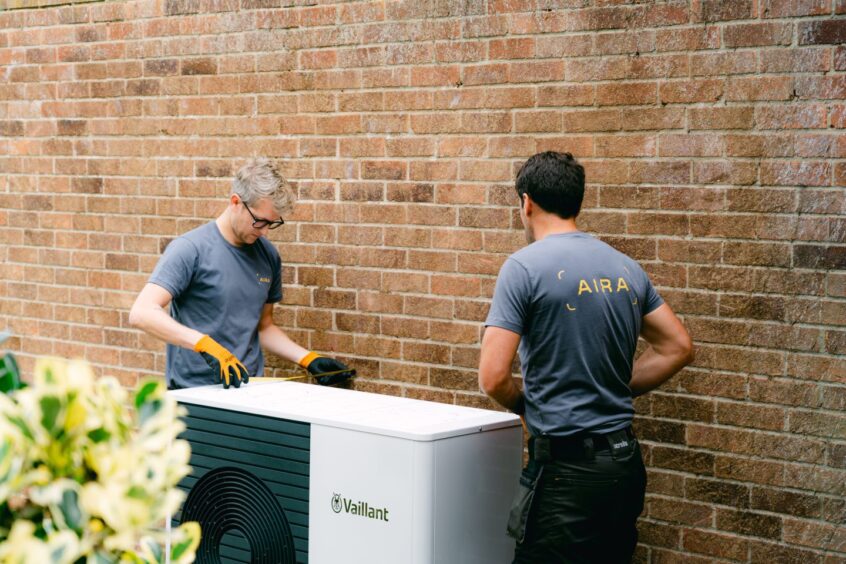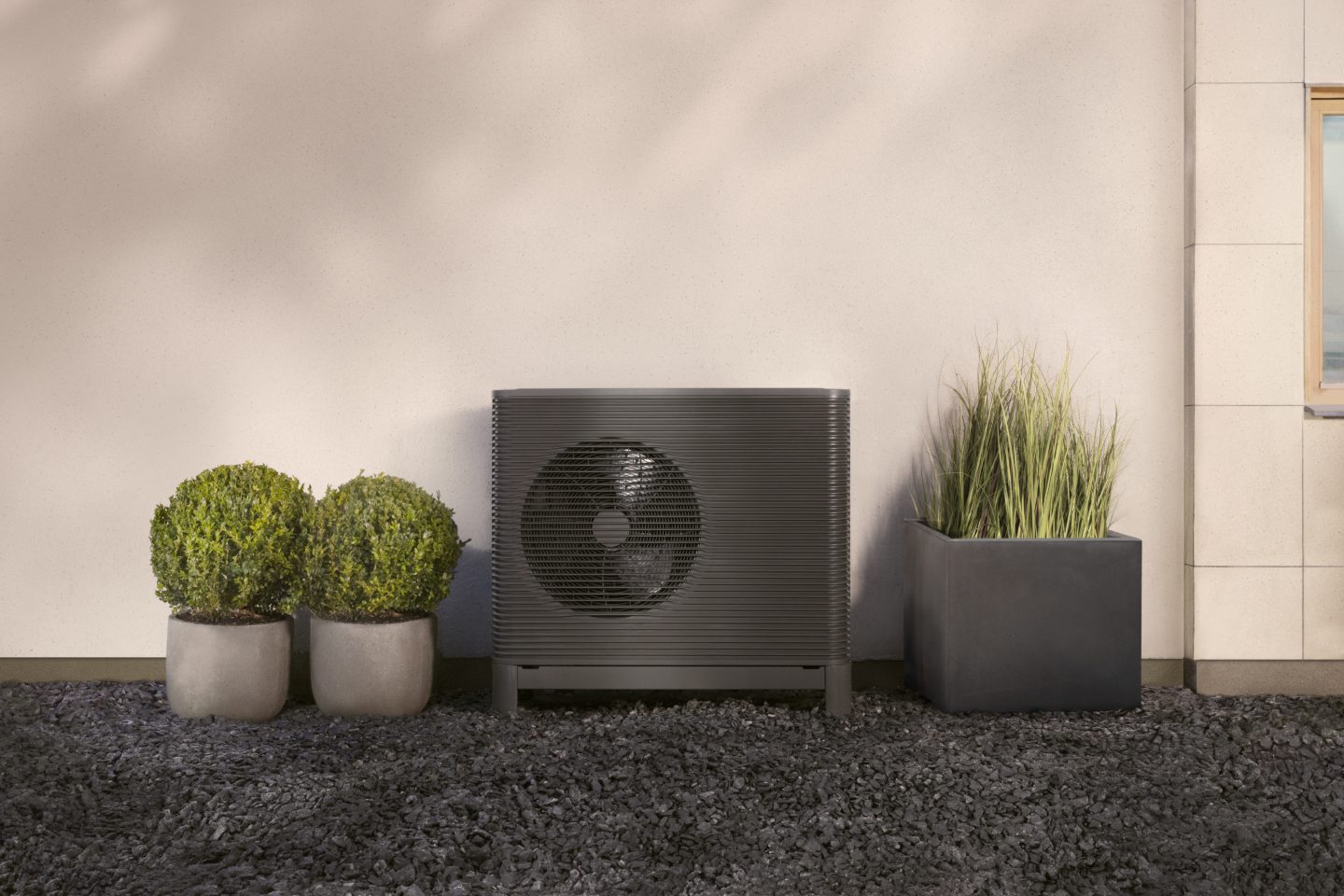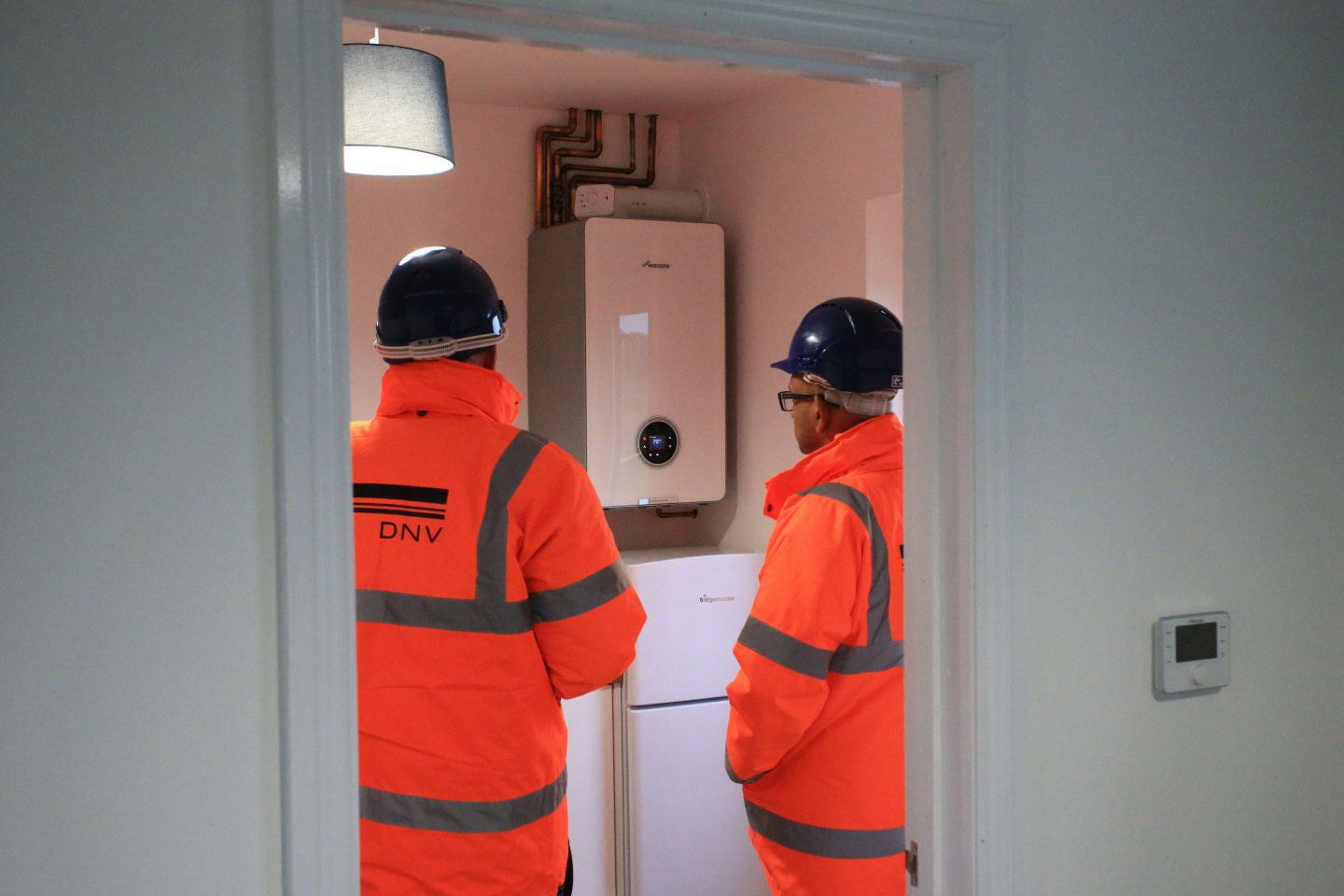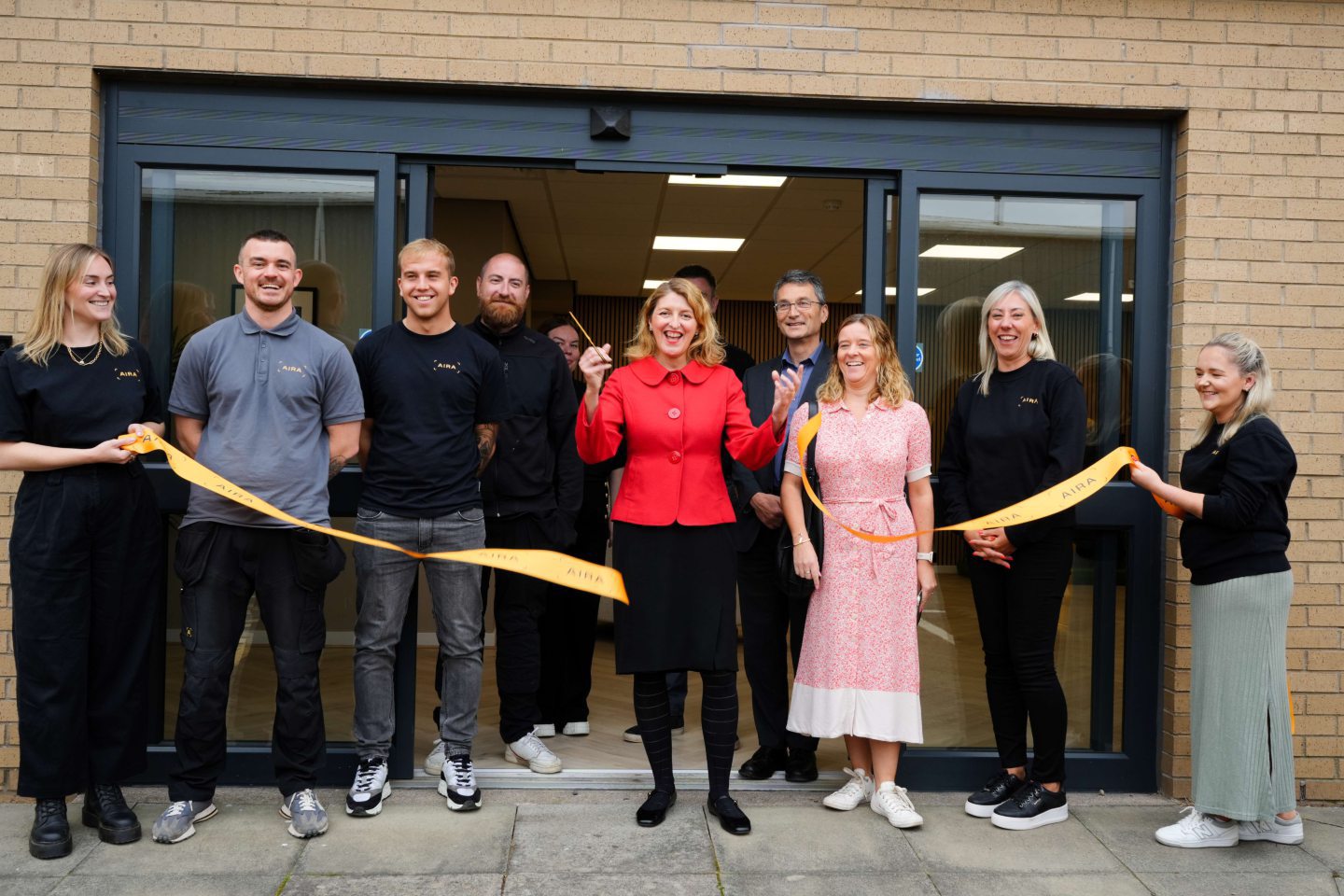
Swedish heat pump developer Aira is investing £300 million in the UK in a bid to take one million homes off gas.
The company launched in the UK in November last year, and this week opened a Scottish hub in Stirling as part of plans to become “Scotland’s heat pump market leader”.
As the UK continues to expand its wind and solar electricity generation, heat pumps provide an efficient option to decarbonise domestic heating.
While heat pumps are already the home heating solution of choice in many European countries, more than 70% of British homes still use gas boilers.
As a result, heating the 28 million homes in the UK accounted for 18% of all greenhouse gas emissions in the country in 2021.
With the fall in demand partly due to milder winter temperatures, record high gas prices have also encouraged more households to look into alternatives such as heat pumps.
But domestic demand for gas has fallen in the UK in recent years, coinciding with falling production from the North Sea.
British households consumed just over 21,000 million cubic metres of gas in 2023, which represents a drop of 19% compared to domestic gas demand in 2021.
Meanwhile, North Sea gas produced around 38% of UK gas supply in 2022, but with much lower associated emissions compared to imported LNG.
The offshore oil and gas sector argues that with demand falling and the North Sea basin maturing, investing in domestic production will provide a “homegrown” energy transition with lower emissions than imports.
Heat pump investment
The UK and Scottish governments are also aiming to increase heat pump usage, alongside investments in other initiatives like district heat networks.
Westminster aims to reach 600,000 installations per year by 2028, an ambitious target considering the UK only installed 72,000 in 2022.
Meanwhile, the Scottish government has set itself an ambition of installing 200,000 heat pumps a year by 2030 as part of a £1.8 billion investment in decarbonising heat.
However, Scotland saw just under 6,400 heat pumps in 2023, again highlighting the substantial increase needed to meet ambitious government targets.
Skills, supply chains and energy efficiency form key parts of the Scottish government’s strategy as it aims to become “one of the leading countries in terms of heat pump manufacturing and installation across Europe”.
Meanwhile, the use of hydrogen boilers to decarbonise home heating in the UK remains in doubt.
Village trials in Whitby and Redcar are no longer going ahead after community opposition, although the H100 project in Fife is underway.
Scotland heat pump market
To capitalise on this, Aira plans to hire 8,000 people and expand rapidly across the UK over the next decade by offering a subscription model with no upfront cost.
Swedish investment firm Vargas Holding launched Aira in Stockholm in 2022, and the company also owns battery manufacturer Northvolt and Stegra, the company behind the H2 Green Steel project in Sweden.
Norwegian state-owned renewable energy developer Statkraft and Singaporean state-owned firm Temasek have also invested in Aira.
The company said it has worked closely with Scottish Enterprise to launch the Stirling hub, with plans to launch a training academy in the city in 2025.
Aira said its market research shows 32% of Scots are considering installing a heat pump in future, as manufacturers begin to overcome early scepticism from consumers.
Aira head of region for Scotland Nicola Mahmood said the opening of the Stirling hub is a milestone in the company’s efforts to “take Europe off gas”.
“The Stirling hub will also become a centre of excellence for Aira in Scotland, where we will train the next generation of heat pump installers and provide green skills training to the local community,” Mahmood said.
“It’s encouraging to see increasing consumer demand, but we need to unlock essential barriers to grant and loan access to truly accelerate adoption across Scotland.”
‘Hundreds’ of local jobs
Stirling MSP Evelyn Tweed said the new Aira facility in the city will mean “potentially hundreds” of local jobs alongside contributing to decarbonising heating.
“The Scottish government has an ambitious target to convert thousands of homes from fossil fuel heating to cleaner alternatives such as air source heat pumps,” Tweed said.
“If we achieve that goal, we will not only help to make energy more affordable and secure for all Scots but become one of the most energy efficient countries anywhere in the world.
“Many people living in rural areas are not on mains gas and pay a great deal for alternative sources of energy, so a greener, cheaper alternative is welcome.”
Recommended for you

 © Image: Aira/The 10 Group
© Image: Aira/The 10 Group © Supplied by DNV
© Supplied by DNV © Image: Aira/The 10 Group
© Image: Aira/The 10 Group